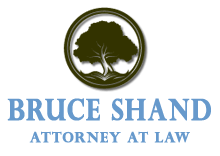Great Expectations – Inheritance Planning in Utah Is A Two-Way Street
“These findings show that many Americans expect to leave an inheritance,” said Andy Ireland, head of premier banking and wealth management at HSBC. “However, it’s vital that people don’t rely on these potential windfalls to fund their retirement.”
When it comes to consideration of what an “inheritance” means today in America, there are difficult waters to navigate for those planning for their estates and those planning to inherit those estates.
According to a recent CNN Money article titled “Average American inheritance: $177,000,” it is a tale of two facts:
The good:
American retirees expect to leave an average inheritance of almost $177,000 to their heirs, the sixth highest of any country, according to an HSBC survey of more than 16,000 people in 15 countries.
And the tough to count on:
Around the world, 69% of retirees plan to leave an inheritance to their offspring, at an average of $148,000. Retirees in India were most likely to do so — with 86% expecting to leave money behind — while American retirees were the least likely, with only 56% expecting to give inheritances to their children.
You see, the math behind bequest and inheritance in the U.S. is an increasingly tricky one. There are a number of factors at play. These include such wild cards as the rising costs of late-age long-term care, unstable financial markets and the lack of wealth transfer maximization. Regardless, whether you are the one planning the wealth transfer or the one planning to receive it, this is a time to be realistic.
So, what should you do? Be sure to do the best with the financial resources you have. As a family, that means coming together to consider the issues and discussing a real plan for how it all ought to fall into place under a variety of “what if” scenarios.
Reference: CNN Money (December 13, 2013) “Average American inheritance: $177,000”






